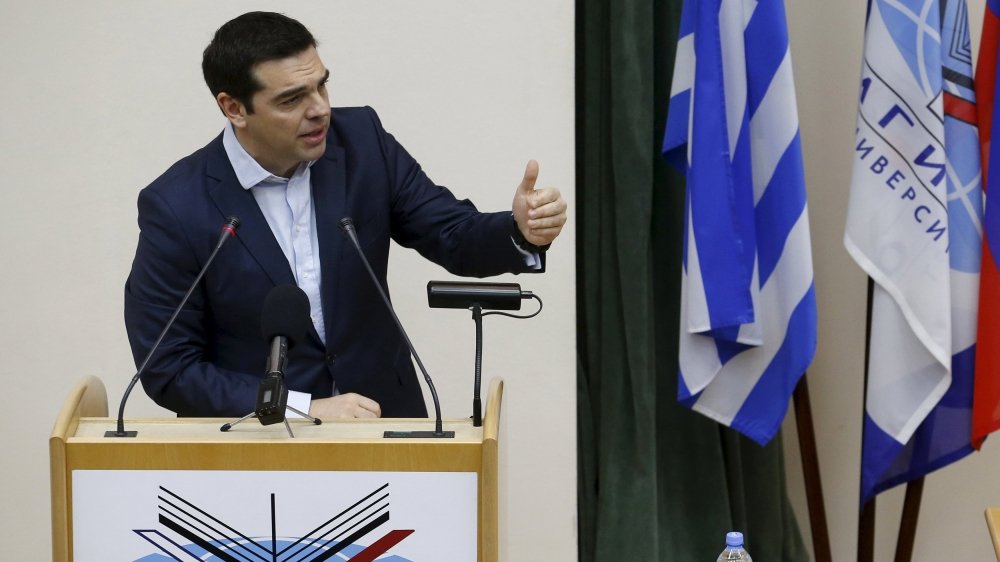Greece has announced it will delay June 5 €300 million ($330 million) debt repayment to the International Monetary Fund.
The country told the IMF it will bundle all four of its June payments together.
The Greek government will have until June 30 to pay the €1.5 billion total, which is also the day on which its bailout deal with the EU and IMF runs out.
PM Alexis Tsipras is trying to reach a deal to unlock final bailout funds before Greece runs out of money.
But Greece’s creditors say differences remain between the two sides.
IMF spokesman Gerry Rice said that under a precedent dating back to the late 1970s, governments could ask to bundle together “multiple principal payments falling due in a calendar month… to address the administrative difficulty of making multiple payments in a short period.”
The last country to bundle together payments to the IMF was Zambia in the mid-1980s.
Alexis Tsipras said after talks in Brussels on June 4 that an agreement with Greece’s international creditors was “in sight”.
However, the head of the eurozone’s finance ministers Jeroen Dijsselbloem, who was involved in the negotiations, said later the gap was “still quite large”.
High-level talks were expected to resume on June 5, although Alexis Tsipras was due to brief the Greek parliament rather than return to Brussels.
Alexis Tsipras rejected elements of proposals put forward by his country’s international creditors in talks with Jeroen Dijsselbloem and European Commission chief Jean-Claude Juncker.
He said the sides were now “very close to an agreement” on the key sticking point of primary surpluses – the amount by which tax revenues exceed public spending.
Alexis Tsipras also said there were “points that no-one would consider as a base for discussion”, citing cuts to pensions and a raise in sales tax for electricity.
Jeroen Dijsselbloem said the talks had been successful in narrowing down the remaining issues, although key differences still remained.
He expected Greece to “look at our proposals more carefully, probably come up with some alternative proposals that they want,” Reuters quoted him as saying.
Greece’s cash-strapped government has been haggling since February over the release of the last €7.2 billion in funds, but its current bailout arrangement with the IMF, European Central Bank (ECB) and European Commission runs out at the end of June.
Failure to reach a deal could trigger a Greek default and a potential exit from the eurozone.
